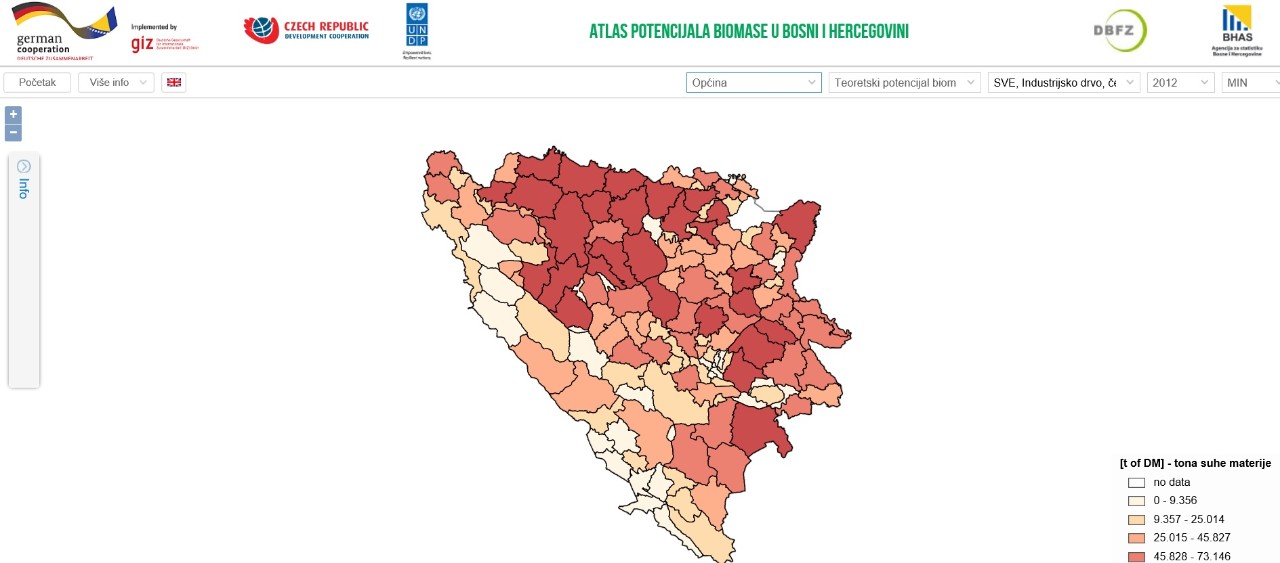The first online interactive map of biomass potential in BiH
In order to evaluate the potential of biomass in forestry and agriculture in Bosnia and Herzegovina, UNDP and GIZ provided technical support for the collection, establishment and presentation of data on an online interactive map - Atlas of Biomass Potential.

Over the past two years have been collected data on the basic and by-products of the forestry and wood processing industries, as well as by-products of crop and livestock production for the period 2012 - 2017. For easier review the data is visualized, and ability to include different spatial levels is given. The map is available at http://atlasbm.bhas.gov.ba/.
"This information will facilitate decision-makers in the process of creating renewable energy policies, better planning, improving land use or subsidization of specific production," said Senka Mutabdzija Bećirović, a UNDP project representative. At the same time, the investors will have an insight into the resources available for starting a bioenergy projects, and to the researchers and statistical institutions will be provided a basis for research and improvement of the data collection process.
The interactive map has been prepared as part of the Working Group for biomass potential monitoring, which was established to ensure the active participation of ownership of public institutions and experts in BiH over the activities and results of this process. The members of the Working Group defined the processes of creating methodology, collecting, analyzing and jointly interpreting data on the potential of forest wood and agricultural biomass in BiH.
A map of biomass potential was presented during the 6th meeting of the Working Group held at Vlašić on 12 March 2019. On that occasion, Minela Pita, Energy Associate at the Ministry of Foreign Trade and Economic Relations of BiH, emphasized “As a signatory to the Energy Community Treaty, Bosnia and Herzegovina is committed to achieving a target share of 40% of renewable energy in its gross final energy consumption by 2020. For illustrative purposes, the importance of biomass in BiH energy consumption is indicated by the fact that thermal energy from renewable sources is obtained from solid biofuels, i.e. wood biomass to the greatest extent. " Regardless of the significant contribution of biomass to the overall energy mix, the data on total biomass consumption vary significantly depending on the study and methodology used. The lack of a clear picture of the share of biomass in energy consumption makes it difficult to define Bosnia and Herzegovina's future targets for the share of renewable energy, in line with its obligations as a signatory to the Energy Community Treaty.
All of these activities have been implemented within the Bioenergy Joint Program in BiH; an initiative launched under the auspices of the Ministry of Foreign Trade and Economic Relations of BiH, in collaboration with the UNDP (project "Employment and Secure Energy Supply Using Biomass" funded by the Czech Development Agency), GIZ ("Promotion of Renewable Energy in BiH") and USAID EIA project ("Investing in the Energy Sector").

